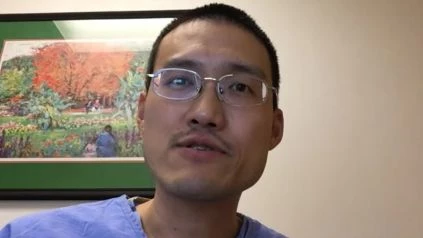Kailin Yang, MD of Cleveland Clinic answers how this will affect clinicians today and questions asked by his colleagues.
_______
Inhibiting two critical steps in the metabolism of glioblastoma stem cells (GSCs) attenuates GSC self-renewal and reduces tumorigenesis, finds a new study presented at the 2019 annual meeting of the American Society for Radiation Oncology (ASTRO).
“Determining how to target glioma stem cells effectively has been a major challenge in treating glioblastoma [GBM],†says Kailin Yang, MD, PhD, a radiation oncology resident at Cleveland Clinic Cancer Center who presented the abstract under the supervision of Jeremy Rich, MD, MHS, of the University of California at San Diego. “Our previous studies suggested that pyrimidine synthesis is associated with clinical outcome in glioblastoma patients, and thus is a productive place to focus our energy.â€
The current study demonstrates that simultaneous targeting of two vital enzymes in the pyrimidine synthetic pathway inhibits self-renewal and tumorigenesis of GSCs.
The first enzyme is rate-limiting carbamoyl-phosphate synthetase 2, aspartate transcarbamyolase, dihydroorotase (CAD). EGFR or PTEN driver mutations demonstrated distinct CAD phosphorylation patterns. The second, dihydroorotate dehydrogenase (DHODH), catalyzes the subsequent step in pyrimidine synthesis after CAD. Targeting both enzymes with clinically approved inhibitors produced sustained inhibition of the survival, self-renewal and in vivo tumor initiation of GSCs in patient-derived xenografts, when compared with single treatments.
Read the rest here:Â https://consultqd.clevelandclinic.org/metabolic-reprogramming-a-promising-approach-to-tackling-therapeutic-resistance-in-glioblastoma/Â

